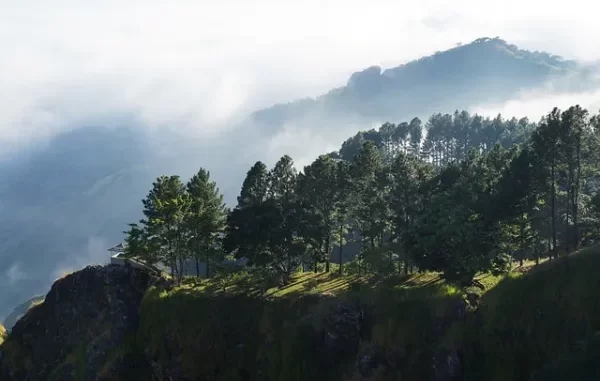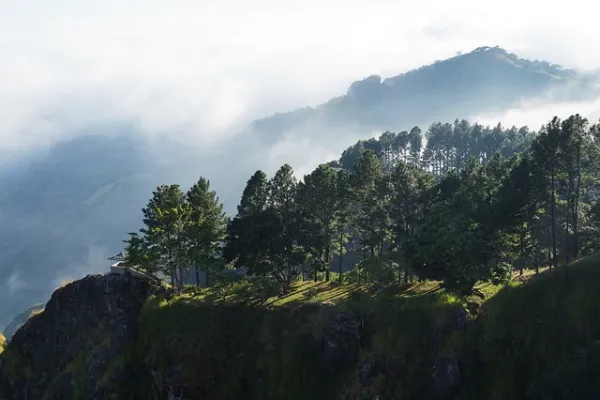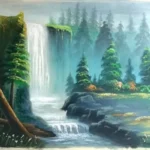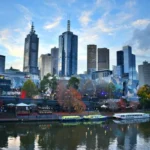
Interesting Facts About El Salvador: The Unique Facts Beyond the Headlines
El Salvador, a small yet captivating Central American nation, is often overshadowed by headlines highlighting its challenges. However, beyond the narratives of adversity, El Salvador boasts a tapestry of culture, history, and natural wonders. In this article, we’ll delve into some intriguing facts that shed light on the lesser-known aspects of this beautiful country.
1. Land of Volcanoes: El Salvador is often referred to as the “Land of Volcanoes” due to its impressive concentration of volcanoes. There are over 20 volcanoes in the country, with some, like Santa Ana and Izalco, offering breathtaking views and opportunities for exploration.
2. Pupusas – National Delicacy: Pupusas, a traditional Salvadoran dish, hold a special place in the hearts and stomachs of locals. These thick, handmade corn tortillas are filled with cheese, beans, or meat, creating a delicious and iconic culinary experience.
3. Joya de Cerén – The Pompeii of the Americas: Joya de Cerén, a UNESCO World Heritage Site, is often dubbed the “Pompeii of the Americas.” Buried by volcanic ash in the 7th century, this archaeological site provides a fascinating glimpse into daily life during the Maya civilization.
4. Pacific Paradise: Despite being a relatively small country, El Salvador offers pristine Pacific beaches that rival those of larger coastal nations. Surf enthusiasts flock to popular spots like El Zonte and El Tunco to catch world-class waves and experience the laid-back beach culture.
5. El Salvador’s Currency: El Salvador is the only country in Central America that does not have its own currency. The official currency is the United States Dollar, making it an easy destination for travelers from the United States.
6. The First Capital of Central America: Founded in 1525, San Salvador holds the distinction of being the first capital of Central America. Over the centuries, the city has witnessed a rich history, including earthquakes, civil wars, and periods of cultural flourishing.
7. National Flower – Flor de Izote: The Flor de Izote, or the Yucca flower, is El Salvador’s national flower. Known for its elegant appearance, it symbolizes resilience and endurance, reflecting the spirit of the Salvadoran people.
8. Cihuatan Archaeological Park: Cihuatan, one of the largest pre-Columbian archaeological sites in El Salvador, offers a glimpse into the ancient Mayan city that once thrived in the region. Its well-preserved structures and pyramids stand as testaments to the advanced civilization that called this area home.
9. Santa Ana Cathedral: The Santa Ana Cathedral, located in the city of Santa Ana, is renowned for its neo-Gothic architecture and is considered one of the most impressive cathedrals in Central America. Its intricate details and historical significance make it a must-visit cultural landmark.
10. Efforts in Environmental Conservation: El Salvador has made commendable strides in environmental conservation, with initiatives to protect its diverse ecosystems. Efforts include the establishment of national parks like El Imposible, home to rare species and pristine landscapes.

Discovering El Salvador: A Tapestry of History, Ancient Marvels, and Natural Wonders
El Salvador, though compact in size, is rich in cultural and historical gems that beckon exploration. One noteworthy aspect is its historical legacy as the first Central American country to gain independence from Spanish rule in 1821. The country’s intricate past is vividly reflected in its capital, San Salvador, where the historic downtown area showcases colonial-era architecture, including the Metropolitan Cathedral and the National Palace.
El Salvador is also home to the UNESCO-listed Joya de Cerén archaeological site, often referred to as the “Pompeii of the Americas.” Preserved under volcanic ash since AD 600, this ancient village provides a fascinating window into the daily lives of the pre-Columbian Mayan people, making it a must-visit for history enthusiasts.
In addition to its historical allure, El Salvador boasts captivating natural wonders. The Santa Ana Volcano, the highest volcano in the country, offers breathtaking panoramic views from its summit. The Coatepeque Lake, a large crater lake formed by a volcanic eruption, provides a tranquil setting for relaxation and water activities. El Salvador’s Pacific coastline, renowned for its excellent surf, draws wave enthusiasts from around the world.
Beyond its landscapes, El Salvador’s commitment to environmental conservation is exemplified by the Cordillera de Apaneca, a region recognized for its efforts in preserving its cloud forests, wildlife habitats, and biodiversity. These interesting facts about El Salvador collectively contribute to its unique charm as a destination that seamlessly weaves together its historical tapestry and the allure of its natural splendors.
Conclusion:
El Salvador, with its volcanoes, archaeological treasures, and warm beaches, is a destination rich in history and culture. While acknowledging the challenges the country faces, it is equally important to appreciate the resilience and vibrant spirit that define the heart of El Salvador. Beyond the headlines, there is a nation ready to be explored and celebrated.






Leave a Reply